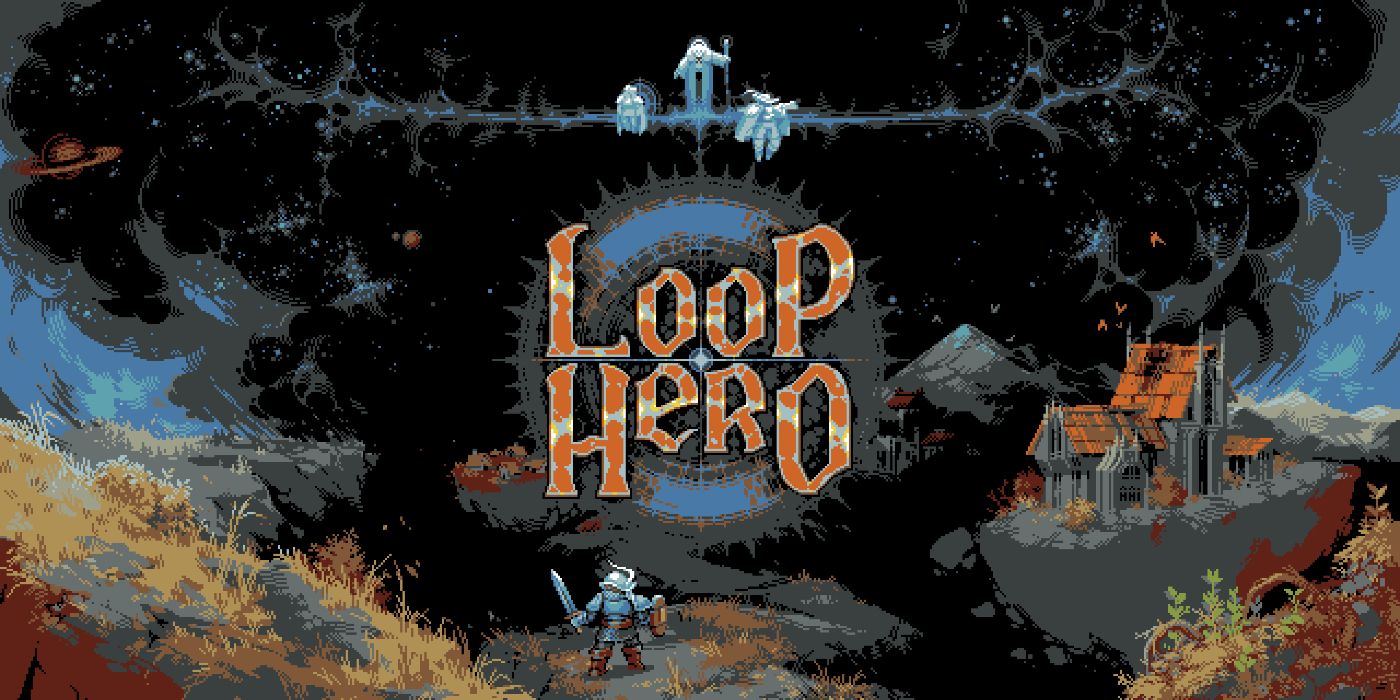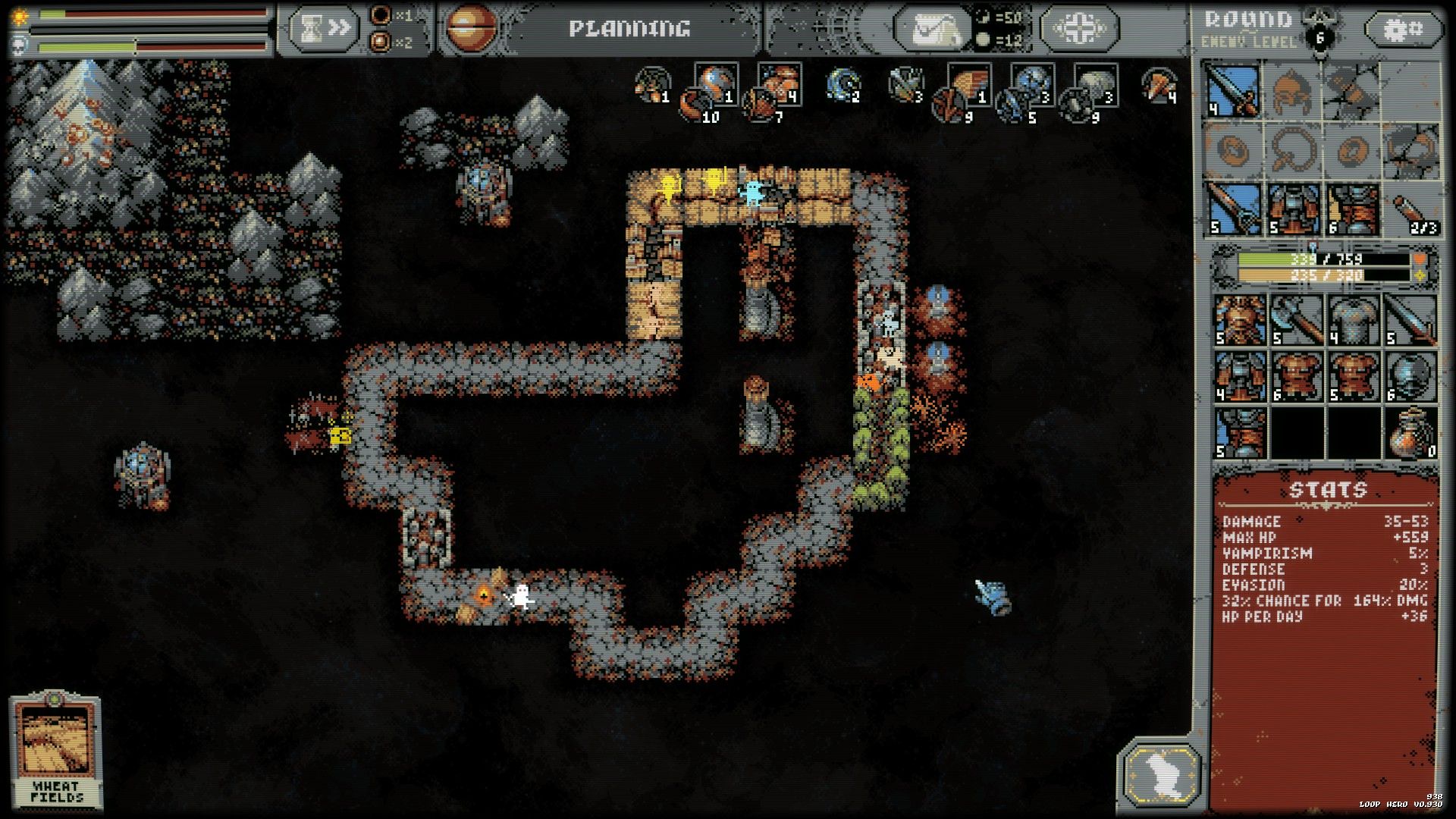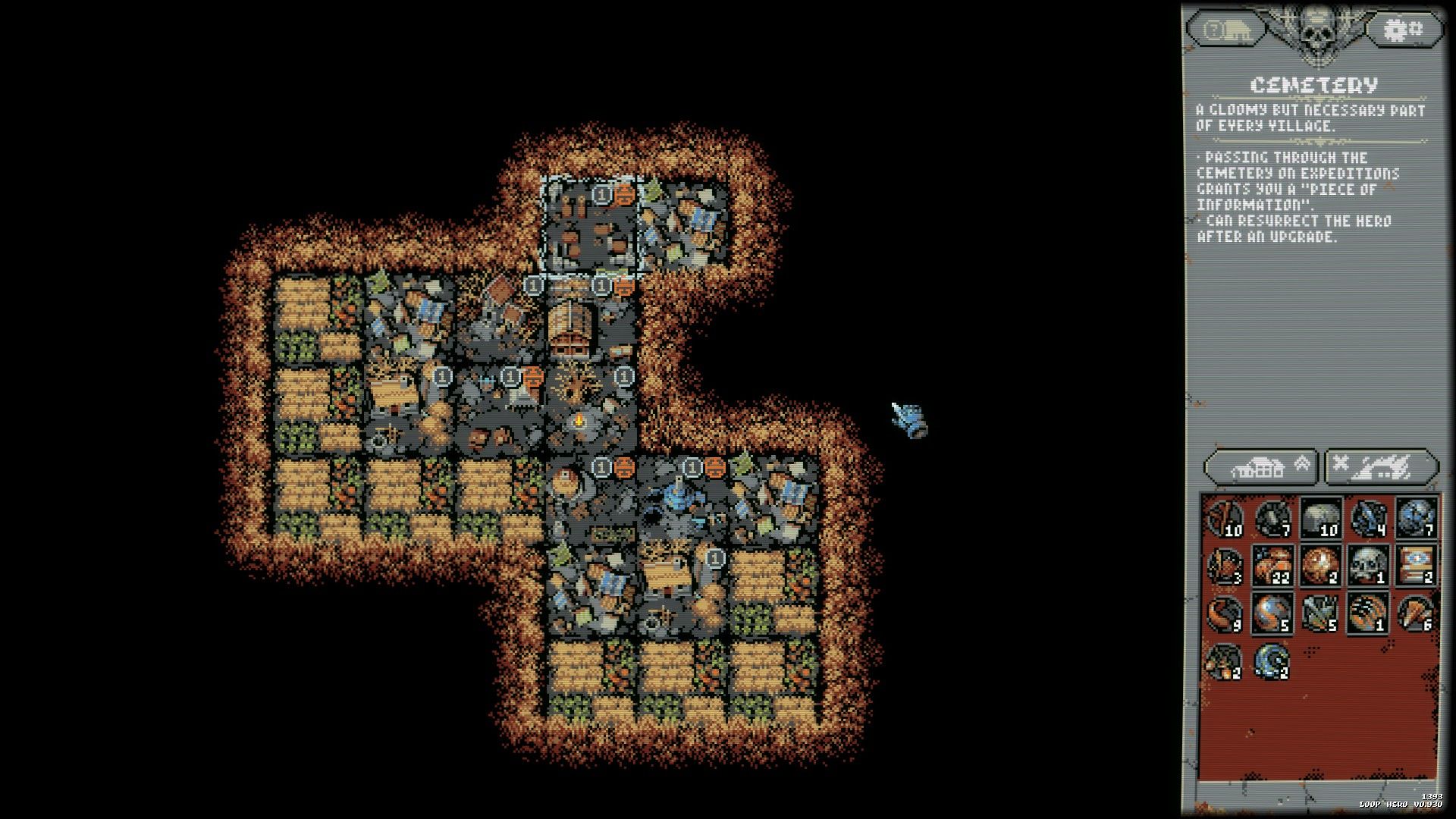Loop Hero, developed by Four Quarters and published by Devolver Digital, is a fascinating example of the kind of unique gameplay that is possible when developers bravely smash genres and mechanics together. Set against a backdrop of nihilism and hope at the end of a destroyed world, Loop Hero has a lot going for it, especially if players are looking to challenge their brains in a different way. Not much has changed since Loop Hero's preview, and the core elements remain entertaining, but it is clear that a ton of polish has been added that makes Loop Hero even better.
Loop Hero is hard to pin down. The core gameplay loop is literally a loop. The hero wanders around a road of his own accord, battling monsters that spawn on the road at the start of each in game day. Enemies drop items and, more importantly, cards. Cards can be placed to add buffs and debuffs to the map, spawning new enemies and treasure chests, adding healing, and other map wide changes. These cards are drawn from a deck players can build back at base, so there is a great deal of thinking that can go into each aspect of Loop Hero. Other recent roguelikes like Rogue Heroes: Ruins of Tasos might suffer from bugs, but Loop Hero manages a pile of mechanics without any apparent glitches, leaving players free to plan and play to their hearts content. There is a good sense of progression, even if the core gameplay is tied to wandering endless roads, as building up a village to support each journey is also satisfyingly deep.
Narratively Loop Hero follows the adventures of a hero lost in a shattered world. Taking place after a Lich and powerful forces have already defeated the forces of good and destroyed everything, the hero wanders along an endless loop, trying to reconstruct the world he knew one piece at a time. Along the way are other characters, friendly and unfriendly, who discuss the nature of reconstructing a world that contained both good and ill. It's not the deepest narrative, but it is engaging enough to make new encounters fun to look forward to.
Aesthetically, Loop Hero manages to evoke nostalgia with its pixel art, creating a similar feel to the best NES canon Castlevania games. The changing look of the loop as more cards are played is satisfying, the simple graphics of the hero and enemies are instantly recognizable on the map, and the close up portraits of characters are excellently detailed. The music and sound effects are also quite nice, with the music complementing the loop through it's soft, but still energetic, pulse. Overall the aesthetics of Loop Hero go a long way to giving feeling to the core gameplay loop. It feels like the hero is wandering through a blasted wasteland of a shattered world.
Loop Hero manages to do something really interesting with its core mechanic. The wandering loop gameplay forces players to weigh the pros and cons of another run, the pros and cons of each card placement, and the pros and cons of different equipment. There is a lot for players to consider, and working out the optimal strategies for each loop is fun and scratches the tactical gameplay itch. Loop Hero might not satisfy some of the twitchy gameplay of other recent roguelikes, but the overall Loop Hero is tight and plays well, making it stand out amidst the crowded field.
Loop Hero is a one-of-a-kind adventure. Blending roguelike elements with deck building and auto-battling feels like a combination that shouldn't work, but Loop Hero pulls it off in magnificent style. It might not be for everyone, but the core gameplay is entertaining, forces important decision making, and keeps players coming back for more.
Loop Hero is releases on PC via Steam today, March 4, 2021. A Steam key was provided to Screen Rant for the purposes of this review.



